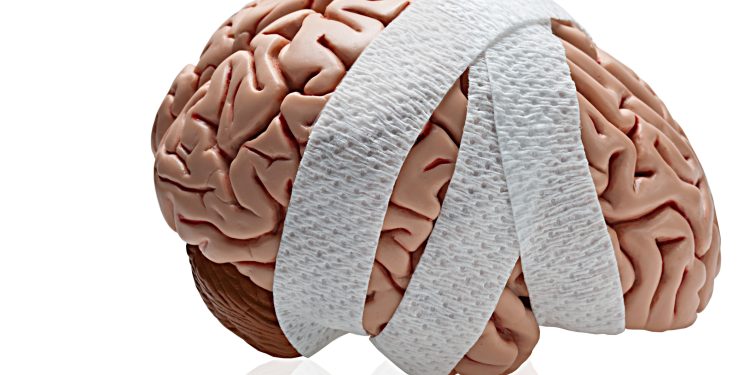A traumatic brain injury (TBI) is an injury that affects how the brain works, and it is a major cause of disability – and even death — in the United States.
On average, 176 Americans die each day from TBI-related causes, according to the most recent data from the Centers for Disease Control and Prevention.
“TBI is a broad term that describes a vast array of injuries, but it is usually the result of a sudden, violent blow to the head,” said James Pacelli, M.D., a neurologist with Penn Highlands Neurology.
“The damage may be confined to one area of the brain or it may be diffused through various areas, and the severity can range from a mild concussion to a severe injury that results in serious disability or death.”
Anyone can experience a TBI, but people 75 years and older have the highest numbers and rates of TBI-related hospitalizations and deaths, and men are nearly two times more likely to be hospitalized and three times more likely to die from a TBI than women.
“TBIs are also a common injury among high-school students,” said Dr. Pacelli. “According to the CDC, in 2019 about 15 percent of all U.S. high-school students reported one or more sports or recreation-related concussions within the preceding 12 months.”
Depending on the severity of the injury, patients may experience problems that last only a few days or problems that affect the rest of their lives.
A person with a mild TBI or concussion may experience short-term symptoms and recover within a couple of weeks, while a person with a moderate or severe TBI could have long-term or life-long effects.
The physical signs and symptoms of mild TBI might include headache, nausea, vomiting, fatigue or drowsiness, problems with speech, dizziness or loss of balance.
Cognitive symptoms may include loss of consciousness for a few seconds to a few minutes; a state of being dazed, confused or disoriented; memory or concentration problems; and mood changes or mood swings.
In addition, sensory symptoms of a mild TBI may include blurred vision, ringing in the ears, a bad taste in the mouth and sensitivity to light or sound.
Moderate to severe TBI often include the signs and symptoms of mild injury but can also include a variety of other symptoms.
Physical signs of a moderate or severe TBI may include persistent headache or headache that worsens, repeated vomiting or nausea, convulsions or seizures, dilation of one or both pupils of the eyes, clear fluids draining from the nose or ears or weakness or numbness in fingers and toes.
Cognitive symptoms of moderate and severe TBIs may include loss of consciousness from several minutes to hours; profound confusion; agitation, combativeness or other unusual behavior; and slurred speech.
Whenever a blow to the head occurs, always seek immediate medical attention. Even a mild traumatic brain injury is a serious diagnosis that requires prompt evaluation.
Also seek immediate medical attention if symptoms of a traumatic brain injury appear in the days or weeks following the incident.
Penn Highlands Neurology offers comprehensive care for traumatic brain injuries and other neurological conditions, including Parkinson’s, Alzheimer’s, stroke, MS, sleep disorders, migraines and more. Patients of all ages also receive expert concussion care at the Penn Highlands Concussion Clinic, a center dedicated to the diagnosis and treatment of all types of concussions.
To learn more, visit www.phhealthcare.org/neurology or call the Concussion Clinic at 814-375-6200.




